Florida Consumer Protection -
Deceptive and Unfair Trade Practices Act
Chapter 501. Florida Consumer Protection
Part II. Deceptive and Unfair Trade Practices
501.201. Short title
This part shall be known and may be cited as the “Florida Deceptive and Unfair Trade Practices Act.”
Chapter 501. Florida Consumer Protection
501.202. Purposes; rules of construction
The provisions of this part shall be construed liberally to promote the following policies:
(1) To simplify, clarify, and modernize the law governing consumer protection, unfair methods of competition, and unconscionable, deceptive, and unfair trade practices.
(2) To protect the consuming public and legitimate business enterprises from those who engage in unfair methods of competition, or unconscionable, deceptive, or unfair acts or practices in the conduct of any trade or commerce.
(3) To make state consumer protection and enforcement consistent with established policies of federal law relating to consumer protection.
Chapter 501. Florida Consumer Protection
501.203. Definitions
As used in this chapter, unless the context otherwise requires, the term:
(1) “Final judgment” means a judgment, including any supporting opinion, that determines the rights of the parties and concerning which appellate remedies have been exhausted or the time for appeal has expired.
(2) “Enforcing authority” means the office of the state attorney if a violation of this part occurs in or affects the judicial circuit under the office's jurisdiction. “Enforcing authority” means the Department of Legal Affairs if the violation occurs in or affects more than one judicial circuit or if the office of the state attorney defers to the department in writing, or fails to act upon a violation within 90 days after a written complaint has been filed with the state attorney.
(3) “Violation of this part” means any violation of this act or the rules adopted under this act and may be based upon any of the following as of July 1, 2013:
(a) Any rules promulgated pursuant to the Federal Trade Commission Act, 15 U.S.C. ss. 41 et seq.;
(b) The standards of unfairness and deception set forth and interpreted by the Federal Trade Commission or the federal courts;
(c) Any law, statute, rule, regulation, or ordinance which proscribes unfair methods of competition, or unfair, deceptive, or unconscionable acts or practices.
(4) “Department” means the Department of Legal Affairs.
(5) “Order” means a cease and desist order issued by the enforcing authority as set forth in s. 501.208.
(6) “Interested party or person” means any person affected by a violation of this part or any person affected by an order of the enforcing authority.
(7) “Consumer” means an individual; child, by and through its parent or legal guardian; business; firm; association; joint venture; partnership; estate; trust; business trust; syndicate; fiduciary; corporation; any commercial entity, however denominated; or any other group or combination.
(8) “Trade or commerce” means the advertising, soliciting, providing, offering, or distributing, whether by sale, rental, or otherwise, of any good or service, or any property, whether tangible or intangible, or any other article, commodity, or thing of value, wherever situated. “Trade or commerce” shall include the conduct of any trade or commerce, however denominated, including any nonprofit or not-for-profit person or activity.
(9) “Thing of value” may include, without limitation, any moneys, donation, membership, credential, certificate, prize, award, benefit, license, interest, professional opportunity, or chance of winning.
Chapter 501. Florida Consumer Protection
501.204. Unlawful acts and practices
(1) Unfair methods of competition, unconscionable acts or practices, and unfair or deceptive acts or practices in the conduct of any trade or commerce are hereby declared unlawful.
(2) It is the intent of the Legislature that, in construing subsection (1), due consideration and great weight shall be given to the interpretations of the Federal Trade Commission and the federal courts relating to s. 5(a)(1) of the Federal Trade Commission Act, 15 U.S.C. s. 45(a)(1) as of July 1, 2013.
Chapter 501. Florida Consumer Protection
501.205. Rulemaking authority
(1) The department may adopt rules which set forth with specificity acts or practices that violate this part and which prescribe procedural rules for the administration of this part. All rules and administrative actions taken by the department shall be pursuant to chapter 120.
(2) All substantive rules promulgated under this part must not be inconsistent with the rules, regulations, and decisions of the Federal Trade Commission and the federal courts in interpreting the provisions of s. 5(a)(1) of the Federal Trade Commission Act, 15 U.S.C. s. 45(a)(1).
Chapter 501. Florida Consumer Protection
501.206. Investigative powers of enforcing authority
(1) If, by his or her own inquiry or as a result of complaints, the enforcing authority has reason to believe that a person has engaged in, or is engaging in, an act or practice that violates this part, he or she may administer oaths and affirmations, subpoena witnesses or matter, and collect evidence. Within 5 days, excluding weekends and legal holidays, after the service of a subpoena or at any time before the return date specified therein, whichever is longer, the party served may file in the circuit court in the county in which he or she resides or in which he or she transacts business and serve upon the enforcing authority a petition for an order modifying or setting aside the subpoena. The petitioner may raise any objection or privilege which would be available under this chapter or upon service of such subpoena in a civil action. The subpoena shall inform the party served of his or her rights under this subsection.
(2) If matter that the enforcing authority seeks to obtain by subpoena is located outside the state, the person subpoenaed may make it available to the enforcing authority or his or her representative to examine the matter at the place where it is located. The enforcing authority may designate representatives, including officials of the state in which the matter is located, to inspect the matter on his or her behalf, and he or she may respond to similar requests from officials of other states.
(3) Upon failure of a person without lawful excuse to obey a subpoena and upon reasonable notice to all persons affected, the enforcing authority may apply to the circuit court for an order compelling compliance.
(4) The enforcing authority may request that an individual who refuses to comply with a subpoena on the ground that testimony or matter may incriminate him or her be ordered by the court to provide the testimony or matter. Except in a prosecution for perjury, an individual who complies with a court order to provide testimony or matter after asserting a privilege against self-incrimination to which he or she is entitled by law shall not have the testimony or matter so provided, or evidence derived therefrom, received against him or her in any criminal investigation or proceeding.
(5) Any person upon whom a subpoena is served pursuant to this section shall comply with the terms thereof unless otherwise provided by order of the court. Any person who fails to appear with the intent to avoid, evade, or prevent compliance in whole or in part with any investigation under this part or who removes from any place, conceals, withholds, mutilates, alters, or destroys, or by any other means falsifies any documentary material in the possession, custody, or control of any person subject to any such subpoena, or knowingly conceals any relevant information with the intent to avoid, evade, or prevent compliance shall be liable for a civil penalty of not more than $5,000, reasonable attorney's fees, and costs.
Chapter 501. Florida Consumer Protection
501.2065. Confidentiality of intelligence or investigative information
Whenever criminal or civil intelligence, investigative information, or any other information held by any state or federal agency is available to the department on a confidential or a similarly restricted basis, the department, in the course of the investigation of any violation of this part, may obtain and use such information. Any such intelligence or investigative information that is confidential or exempt from the provisions of s. 119.07(1) retains its status as confidential or exempt from the provisions of s. 119.07(1)
Chapter 501. Florida Consumer Protection
501.207. Remedies of enforcing authority
(1) The enforcing authority may bring:
(a) An action to obtain a declaratory judgment that an act or practice violates this part.
(b) An action to enjoin any person who has violated, is violating, or is otherwise likely to violate, this part.
(c) An action on behalf of one or more consumers or governmental entities for the actual damages caused by an act or practice in violation of this part. However, damages are not recoverable under this section against a retailer who has in good faith engaged in the dissemination of claims of a manufacturer or wholesaler without actual knowledge that it violated this part.
(2) Before bringing an action under paragraph (1)(a) or paragraph (1)(c), the head of the enforcing authority shall review the matter and determine if an enforcement action serves the public interest. This determination shall be made in writing, but shall not be subject to the provisions of chapter 120.
(3) Upon motion of the enforcing authority or any interested party in any action brought under subsection (1), the court may make appropriate orders, including, but not limited to, appointment of a general or special magistrate or receiver or sequestration or freezing of assets, to reimburse consumers or governmental entities found to have been damaged; to carry out a transaction in accordance with the reasonable expectations of consumers or governmental entities; to strike or limit the application of clauses of contracts to avoid an unconscionable result; to bring actions in the name of and on behalf of the defendant enterprise, without regard to any wrongful acts that were committed by the enterprise; to order any defendant to divest herself or himself of any interest in any enterprise, including real estate; to impose reasonable restrictions upon the future activities of any defendant to impede her or him from engaging in or establishing the same type of endeavor; to order the dissolution or reorganization of any enterprise; or to grant legal, equitable, or other appropriate relief. The court may assess the expenses of a general or special magistrate or receiver against a person who has violated, is violating, or is otherwise likely to violate this part. Any injunctive order, whether temporary or permanent, issued by the court shall be effective throughout the state unless otherwise provided in the order.
(4) If a violator shows that a violation of this part resulted from a bona fide error notwithstanding the maintenance of procedures reasonably adapted to avoid the error, recovery under this section is limited to the amount, if any, by which the violator was unjustly enriched by the violation.
(5) No action may be brought by the enforcing authority under this section more than 4 years after the occurrence of a violation of this part or more than 2 years after the last payment in a transaction involved in a violation of this part, whichever is later.
(6) The enforcing authority may terminate an investigation or an action upon acceptance of a person's written assurance of voluntary compliance with this part. Acceptance of an assurance may be conditioned on a commitment to reimburse consumers or governmental entities, make contributions, pay civil penalties, pay attorney's fees and costs, or take other appropriate corrective action. An assurance is not evidence of a prior violation of this part. However, unless an assurance has been rescinded by agreement of the parties or voided by a court for good cause, subsequent failure to comply with the terms of an assurance is prima facie evidence of a violation of this part. Such assurance is not a limitation upon any action or remedy available to a person aggrieved by a violation of this part.
(a) The statement is offered as evidence of a material fact;
(b) The statement is more probative on the point for which it is offered than any other evidence which the proponent can procure through reasonable efforts; and
(c) The general purpose of the Florida Rules of Evidence and the interests of justice will be best served by the admission of such statement into evidence. However, a statement may not be admitted hereunder unless the proponent of it makes known to the adverse party, sufficiently in advance of the trial or proceeding to provide the adverse party with a fair opportunity to prepare to meet it, the proponent's intention to offer the statement and the particulars of it, including the name and address of the declarant.
Chapter 501. Florida Consumer Protection
501.2077. Violations involving senior citizen, person who has a disability, military servicemember, or the spouse or dependent child of a military servicemember; civil penalties; presumption
(1) As used in this section, the term:
(a) “Major life activities” means functions associated with the normal activities of independent daily living, such as caring for one's self, performing manual tasks, walking, seeing, hearing, speaking, breathing, learning, and working.
(b) “Mental or educational impairment” means: 1. A mental or psychological disorder or specific learning disability. 2. An educational deficiency that substantially affects a person's ability to read and comprehend the terms of any contractual agreement entered into.
(c) “Military service member” means a person who is on active duty in, or a veteran of, the United States Armed Forces. 1. “Active duty” has the same meaning as provided in s. 250.01. 2. “Veteran” has the same meaning as provided in s. 1.01.
(d) “Person who has a disability” means a person who has a mental or educational impairment that substantially limits one or more major life activities.
(e) “Senior citizen” means a person who is 60 years of age or older.
(2) A person who is willfully using, or has willfully used, a method, act, or practice in violation of this part which victimizes or attempts to victimize a senior citizen or a person who has a disability is liable for a civil penalty of not more than $15,000 for each such violation if she or he knew or should have known that her or his conduct was unfair or deceptive.
(3) A person who is willfully using, or has willfully used, a method, act, or practice in violation of this part directed at a military service member or the spouse or dependent child of a military service member is liable for a civil penalty of not more than $15,000 for each such violation if she or he knew or should have known that her or his conduct was unfair or deceptive.
(4) An order of restitution or reimbursement based on a violation of this part committed against a senior citizen, a person who has a disability, a military servicemember, or the spouse or dependent child of a military servicemember has priority over the imposition of civil penalties for such violations pursuant to this section.
(5) Civil penalties collected pursuant to this section shall be deposited into the Legal Affairs Revolving Trust Fund of the Department of Legal Affairs and allocated solely to the Department of Legal Affairs for the purpose of preparing and distributing consumer education materials, programs, and seminars to benefit senior citizens, persons who have a disability, and military servicemembers or to further enforcement efforts.
Chapter 501. Florida Consumer Protection
501.2079. Violations involving discrimination in the provision of video services
(1) As used in this section, the term:
(a) “Cable service” has the same meaning as in s. 610.103(1).
(b) “Video service” has the same meaning as in s. 610.103(11).
(c) “Resident” means a resident residing within a service area as set out in s. 610.104(2)(e)5. and (6).
(d) “Provider” means a cable or video service provider that has been issued and holds a statutory certificate of franchise authority from the Department of State.
(e) “Discrimination” means the denial of access to cable or video service to any individual or group of residents because of the race or income of the residents in the local area in which such individual or group resides. Such discrimination shall be prohibited as to residents throughout the service area of the municipality or county within which service is provided.
(2) Discrimination among residents by a provider of cable or video services is declared unlawful and constitutes a violation of this section.
(3) For purposes of determining whether a provider has violated subsection (2), a cable or video service provider may satisfy the nondiscrimination requirements of this section through the use of alternative technology that offers service, functionality, and content that is demonstrably similar to that provided through the provider's system and may include a technology that does not require the use of any public right-of-way. The technology used to comply with the requirements of this section is subject to all the requirements of chapter 610. If a provider makes cable or video service available within a reasonable period of time from the initiation of service to residents in its service area, the provider shall be presumed to be in compliance with subsection (2). A provider is not required to offer or provide service to end users residing in an area having a density of fewer than 30 homes per linear cable mile from the provider's nearest activated video distribution plant. This section does not impose a buildout requirement.
(4) For purposes of determining whether a provider has violated subsection (2), cost, density, distance, and technological or commercial limitations shall be taken into account. The inability to provide access to cable or video service because a provider is prohibited from placing its own facilities in a building or property or due to natural disasters is not a violation of subsection (2).
(5) Enforcement of this section shall be as provided in ss. 501.206, 501.207 and 501.211.
(6) Upon a finding by a court of competent jurisdiction that a provider has engaged in unlawful discrimination, the provider shall have a reasonable period of time as specified by the court to cure such noncompliance. If the provider fails to cure within a specified time, any provider who is found to have violated subsection (2) is liable for a civil penalty of not more than $15,000 for each such violation. For purposes of this section, discrimination against each individual member of a group constitutes a separate violation and is subject to a separate penalty as set forth in this section.
Chapter 501. Florida Consumer Protection
501.208. Cease and desist orders; procedures
(1) Whenever the Department of Legal Affairs has reason to believe that a person has been, or is, violating this part, and if it appears to the department that a cease and desist order against such violation would be in the interest of the public, it shall issue and serve upon such person a complaint and order stating its charges in that respect and containing a notice of a hearing upon a day and at the place therein fixed at least 30 days after the service of said complaint. Said hearing shall be held in conformity with the provisions of chapter 120.
(2) The department may modify or set aside its order at any time by rehearing upon its own motion when such rehearing is in the interest of the public welfare.
(3) Judicial review of orders of the department shall be in accordance with the provisions of s. 120.68 and shall take precedence over other civil cases pending and shall be expedited in every way.
(4) An order of the department to cease and desist shall not become effective until 10 days after all administrative action has been concluded or, if appeal is made to the district court of appeal and bond is posted, until a final order has been entered by that court.
(5) No cease and desist order shall act as a limitation upon any other action or remedy available to a person aggrieved by a violation of this act.
(6) When a court remands an order of the department for rehearing, such rehearing shall be held within 45 days after the remand.
(7) Any person who violates a cease and desist order of the department after it has become final and while such order is in effect shall forfeit and pay to the state a civil penalty of not more than $5,000 for each violation which shall accrue to the state and may be recovered in a civil action brought by the state. Each separate violation of such an order shall be a separate offense, except that in the case of a violation through continuing failure or neglect to obey a final order of the department, each day of continuance of such failure or neglect shall be deemed a separate offense.
Chapter 501. Florida Consumer Protection
501.209. Other supervision
If the enforcing authority receives a complaint or other information relating to noncompliance with this act by a person who is subject to other supervision in this state, the enforcing authority shall inform the official or agency having that supervision.
Chapter 501. Florida Consumer Protection
501.2101. Enforcing authorities; moneys received in certain proceedings
(1) Any moneys received by an enforcing authority for attorney's fees and costs of investigation or litigation in proceedings brought under the provisions of s. 501.207, s. 501.208, or s. 501.211 shall be deposited as received in the Legal Affairs Revolving Trust Fund if the action is brought by the Department of Legal Affairs, and in the Consumer Frauds Trust Fund of the Justice Administrative Commission if the action is brought by a state attorney.
(2) Any moneys received by an enforcing authority and neither received for attorney's fees and costs of investigation or litigation nor used to reimburse consumers found under this law to be damaged shall accrue to the state and be deposited as received in the General Revenue Fund unallocated.
Chapter 501. Florida Consumer Protection
501.2105. Attorney's fees
(1) In any civil litigation resulting from an act or practice involving a violation of this part, except as provided in subsection (5), the prevailing party, after judgment in the trial court and exhaustion of all appeals, if any, may receive his or her reasonable attorney's fees and costs from the non-prevailing party.
(2) The attorney for the prevailing party shall submit a sworn affidavit of his or her time spent on the case and his or her costs incurred for all the motions, hearings, and appeals to the trial judge who presided over the civil case.
(3) The trial judge may award the prevailing party the sum of reasonable costs incurred in the action plus a reasonable legal fee for the hours actually spent on the case as sworn to in an affidavit.
(4) Any award of attorney's fees or costs shall become a part of the judgment and subject to execution as the law allows.
(5) In any civil litigation initiated by the enforcing authority, the court may award to the prevailing party reasonable attorney's fees and costs if the court finds that there was a complete absence of a justiciable issue of either law or fact raised by the losing party or if the court finds bad faith on the part of the losing party.
(6) In any administrative proceeding or other nonjudicial action initiated by an enforcing authority, the attorney for the enforcing authority may certify by sworn affidavit the number of hours and the cost thereof to the enforcing authority for the time spent in the investigation and litigation of the case plus costs reasonably incurred in the action. Payment to the enforcing authority of the sum of such costs may be made by stipulation of the parties a part of the final order or decree disposing of the matter. The affidavit shall be attached to and become a part of such order or decree.
Chapter 501. Florida Consumer Protection
501.211. Other individual remedies
(1) Without regard to any other remedy or relief to which a person is entitled, anyone aggrieved by a violation of this part may bring an action to obtain a declaratory judgment that an act or practice violates this part and to enjoin a person who has violated, is violating, or is otherwise likely to violate this part.
(2) In any action brought by a person who has suffered a loss as a result of a violation of this part, such person may recover actual damages, plus attorney's fees and court costs as provided in s. 501.2105. However, damages, fees, or costs are not recoverable under this section against a retailer who has, in good faith, engaged in the dissemination of claims of a manufacturer or wholesaler without actual knowledge that it violated this part.
(3) In any action brought under this section, upon motion of the party against whom such action is filed alleging that the action is frivolous, without legal or factual merit, or brought for the purpose of harassment, the court may, after hearing evidence as to the necessity therefor, require the party instituting the action to post a bond in the amount which the court finds reasonable to indemnify the defendant for any damages incurred, including reasonable attorney's fees. This subsection shall not apply to any action initiated by the enforcing authority.
Chapter 501. Florida Consumer Protection
501.212 Application.
This part does not apply to:
(1) An act or practice required or specifically permitted by federal or state law.
(2) A publisher, broadcaster, printer, or other person engaged in the dissemination of information or the reproduction of printed or pictorial matter, insofar as the information or matter has been disseminated or reproduced on behalf of others without actual knowledge that it violated this part.
(3) A claim for personal injury or death or a claim for damage to property other than the property that is the subject of the consumer transaction.
(4) Any person or activity regulated under laws administered by: (a) The Office of Insurance Regulation of the Financial Services Commission; (b) Banks and savings and loan associations regulated by the Office of Financial Regulation of the Financial Services Commission; (c) Banks or savings and loan associations regulated by federal agencies; or (d) Any person or activity regulated under the laws administered by the former Department of Insurance which are now administered by the Department of Financial Services.
(5) Any activity regulated under laws administered by the Florida Public Service Commission.
(6) An act or practice involving the sale, lease, rental, or appraisal of real estate by a person licensed, certified, or registered pursuant to chapter 475, which act or practice violates s. 475.42 or s. 475.626.
(7)(a) Causes of action pertaining to commercial real property located in this state if the parties to the action executed a written lease or contract that expressly provides for the process of resolution of any dispute and the award of damages, attorney's fees, and costs, if any; or (b) Causes of action concerning failure to maintain real property if the Florida Statutes: 1. Require the owner to comply with applicable building, housing, and health codes; 2. Require the owner to maintain buildings and improvements in common areas in a good state of repair and maintenance and maintain the common areas in a good state of appearance, safety, and cleanliness; and 3. Provide a cause of action for failure to maintain the real property and provide legal or equitable remedies, including the award of attorney's fees. However, this subsection does not affect any action or remedy concerning residential tenancies covered under part II of chapter 83, nor does it prohibit the enforcing authority from maintaining exclusive jurisdiction to bring any cause of action authorized under this part.
Chapter 501. Florida Consumer Protection
501.213. Effect on other remedies
(1) The remedies of this part are in addition to remedies otherwise available for the same conduct under state or local law.
(2) This part is supplemental to, and
makes no attempt to preempt, local consumer protection ordinances not
inconsistent with this part.
Related pages you may be interested in:
- Consumer Protection Laws
- Florida Foreclosure Attorney
- Florida Foreclosure Laws
- Foreclosure Defense Attorney
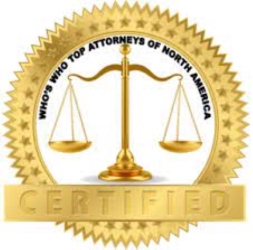
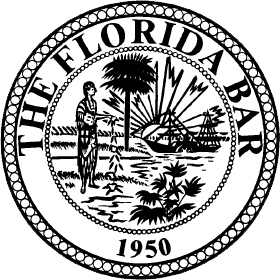
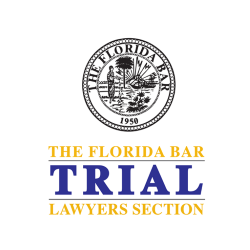
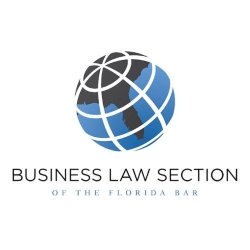
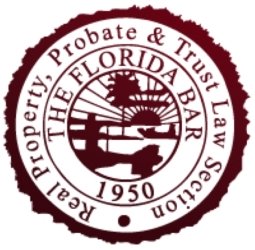
Cocoa Foreclosure Attorney –
Consumer Protection Laws – Florida Commercial Litigation Attorney – Florida Consumer
Protection – Florida Foreclosure Attorney – Florida Foreclosure Laws – Florida
Foreclosure Procedure – Florida Real Estate Attorney – Foreclosure Defense
Attorney


